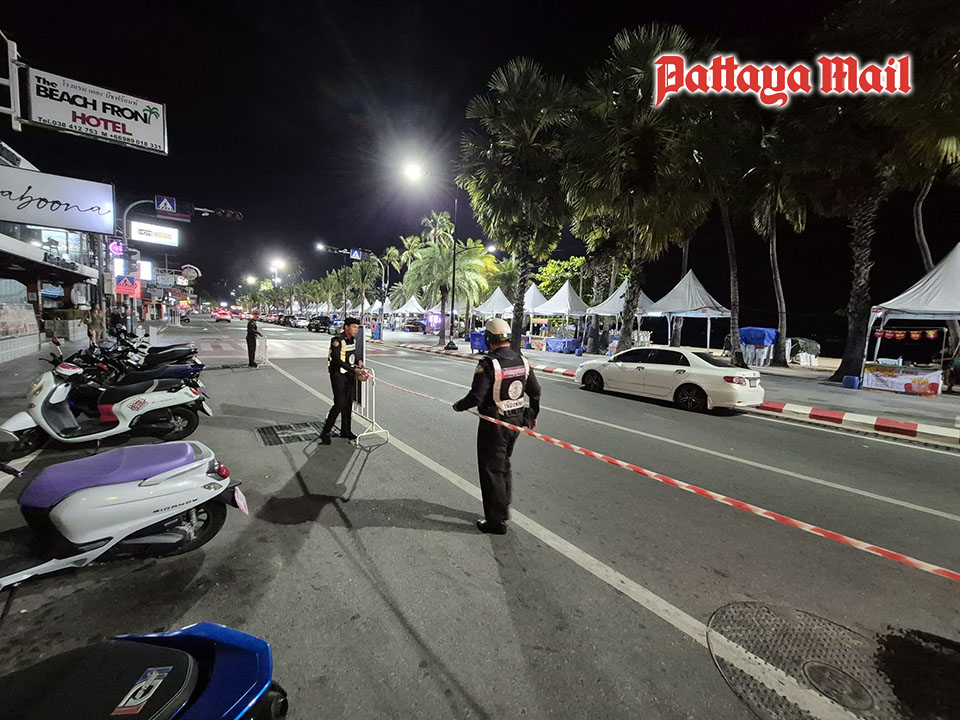
PATTAYA, Thailand – Pattaya, a vibrant and popular tourist destination in Thailand, has long struggled with the issue of drunk driving despite the presence of strict laws and enforcement efforts. While the Thai government has put in place legal measures to curb alcohol-related road accidents, these laws often fail to achieve their desired effect in Pattaya, for several reasons.
Tourism and Alcohol Culture
Pattaya is a major tourist hub, known for its nightlife and entertainment. Bars, nightclubs, and beachside parties dominate much of the city’s social landscape. With a constant influx of tourists who are often on holiday, many feel that they can indulge in alcohol without the same concerns they might have back home. The culture of drinking, coupled with a general lack of awareness about the dangers of drunk driving, means that many people continue to drive under the influence, despite the potential risks.
Weak Law Enforcement and Corruption
Although drunk driving laws in Thailand set a legal blood alcohol concentration (BAC) limit of 0.05%, enforcement in Pattaya is often inconsistent. Police checkpoints are sometimes sporadic, and there have been reports of corruption, where offenders might bribe their way out of fines or penalties. This undermines the effectiveness of the laws, as drivers may feel that the risk of getting caught is minimal. Moreover, police officers often face pressure from local businesses or political connections, leading to a lack of rigorous enforcement.
Tourist Perceptions and Behavior
Many tourists visiting Pattaya come from countries where drunk driving penalties are much stricter or more heavily enforced. However, in Pattaya, they may perceive the local rules as less serious or less likely to be enforced, which leads to a lack of respect for the law. Some tourists also rely on rented vehicles, including motorcycles and cars, which they may not be familiar with or may not fully understand the risks of operating while intoxicated.
Public Transportation and Lack of Alternatives
Pattaya’s public transportation options, particularly for late-night travelers, are limited. Taxis and baht-buses are available but not always easily accessible, especially after hours. This lack of reliable alternative transportation options means that people who have been drinking often resort to driving themselves, as walking or waiting for public transport can be impractical or unsafe.
Lack of Public Awareness Campaigns
Although some local authorities and organizations have made efforts to raise awareness about the dangers of drunk driving, these campaigns are often insufficient or lack long-term impact. Without widespread, sustained education about the consequences of drunk driving and the availability of safer alternatives, the message does not resonate deeply with many of Pattaya’s residents and visitors. Additionally, tourists may be unaware of the potential legal consequences of driving under the influence, especially in a foreign country where legal systems can differ significantly.
Low Perception of Risk
For many individuals in Pattaya, there is a low perception of risk associated with drunk driving. This can be due to cultural attitudes, where drinking alcohol is seen as a normal part of socializing, and the immediate consequences of drunk driving are not always visible or personal. While there are occasional high-profile accidents or fatalities that make the news, the overall risk is not always perceived as imminent, leading to a disregard for the laws.
In conclusion, while Thailand has enacted laws to combat drunk driving, Pattaya’s unique combination of tourism-driven nightlife, weak enforcement, limited public transport, and cultural attitudes toward drinking makes these laws less effective. Without a more comprehensive approach that includes better law enforcement, stronger public awareness campaigns, and greater availability of alternative transportation, the issue of drunk driving in Pattaya is likely to persist.










